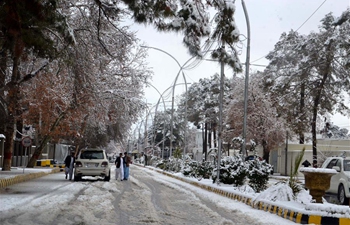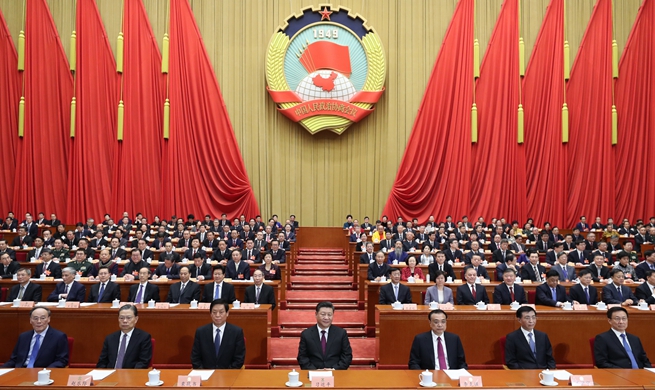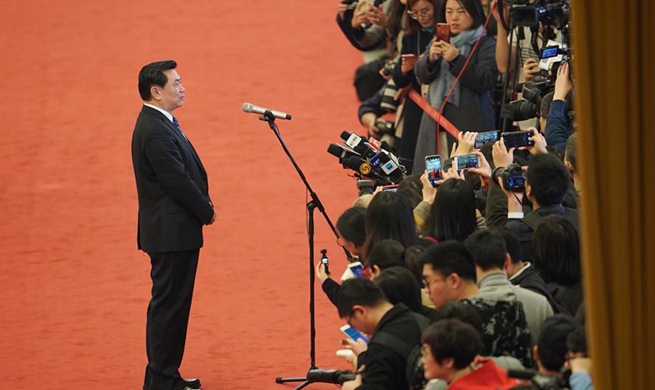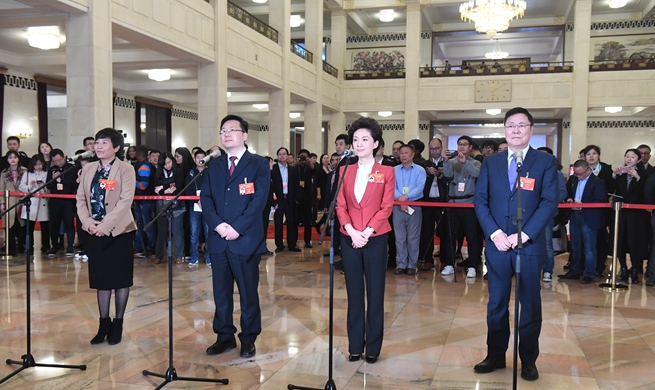ADEN, Yemen, March 3 (Xinhua) -- British Foreign Secretary Jeremy Hunt visited on Sunday Yemen's southern port city of Aden, warning that peace deals signed between the two warring rivals in Yemen may face collapse.
Hunt arrived at Aden's international airport as the first Western foreign minister who has travelled to war-torn Yemen since the start of the conflict between the Shiite Houthi rebels and Yemen's government in 2015.
To show Britain's support for the Yemeni government and the UN efforts to secure peace, Hunt met with Yemeni Deputy Prime Minister Ahmed Saeed Khanbashi and Foreign Minister Khaled Yamani at the presidential compound.
The British minister warned that previous peace deals reached between the Yemeni warring sides under the auspices of the United Nations might face collapse.
"We are now in last-chance saloon for the Stockholm peace process," he said through a short video posted on his official Twitter account.
"The process could be dead within weeks if we do not see both sides sticking to their commitments in Stockholm," he added.
"People in Yemen are on the brink of starvation and none of the parties really want a return to hostilities, so now is the time to take a deep breath, put aside the anger and mistrust after four years of terrible fighting and take the risks that are always necessary at the start of any peace process," Hunt noted.
Hunt inspected Aden's strategic seaport and met with humanitarian aid workers there after leaving presidential compound, according to local sources.
Hours after the departure of Hunt, intense clashes broke out between Yemen's government forces and the Houthi rebels in the eastern neighborhoods of Hodeidah.
The Yemeni warring parties reached the peace deal in Stockholm last December. Despite sporadic attacks, they have largely held the cease-fire in Hodeidah since it went into force on Dec. 18, 2018.
However, both sides have since delayed the implementation of withdrawing forces for several times and continued to blame each other for undermining the peace process.
According to the deal, the mutual withdrawal should be carried out in two phases starting from the ports of Ras Isa, Saleef and Hodeidah, which are all under the Houthi control, and concluding with full withdrawal from inside and around the city.
Saudi Arabia is leading an Arab military coalition that intervened in Yemen in March 2015 to support the government of President Abdu-Rabbu Mansour Hadi after Houthi rebels forced him into exile and seized much of the country's north, including the capital Sanaa and Hodeidah.
The four-year civil war has killed more than 10,000 people, mostly civilians, displaced 3 million others, and pushed the country to the brink of famine.
















